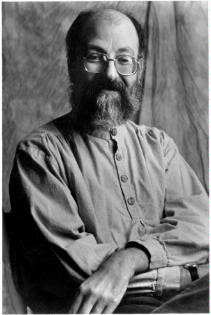Thunder Child book one
by Matt Hardy (writer), Rob Jones (writer/letters/design), Kevin Castaniero (artist), Simon Gough (colourist) and Fred McNamara (editor)
From Mad Robot Comics and Madius
To say I've been obsessed with HG Wells at points in my life would be an understatement - especially The War of the Worlds.
I can flashback in my life to when I was a child, headphones pressed closely over my ears, gatefold vinyl opened in front of me with pullout booklet full of artwork as I listened to Jeff Wayne's album, memorising every word. Years later I'm watching the stage version of the same album, punching the air and joining the audience shouting "Come on, Thunder Child!"
 Another flashback, I'm crouched on my heels in the local library as I pull the book from a bottom shelf and find myself turning the pages, transfixed as I read, the walls of the library falling away and replaced by a mental landscape of Victorian England and the magnificent chapter featuring the Thunder Child as it surges into the fray.
Another flashback, I'm crouched on my heels in the local library as I pull the book from a bottom shelf and find myself turning the pages, transfixed as I read, the walls of the library falling away and replaced by a mental landscape of Victorian England and the magnificent chapter featuring the Thunder Child as it surges into the fray.
Flash through to recent years and my own story The Secret War - a secret history of the *real* story behind Wells' magnum opus... or at least my interpretation of what might have been, published in Tales From Alternate Earths by Inklings Press. (PS You can listen to that here)
And yet despite my love for the story, I've found previous adaptations to be frustrating at best, insulting at worst. Too often, those adapting the work seem to think they know better - from George Pal's 1953 movie version with fighting machines that barely resemble the tripods of the book to Spielberg's version that decided to set it in the modern day and (spoiler) have no major harm befall the central family despite the mass destruction of humanity all around them. Then there was the BBC adaptation that decided to focus on the love story and derail the ending entirely, or the weird late 80s series that tried to be a sequel to a movie from 35 years before.
What many seem to miss is the strength of the setting itself - that Victorian era where England thought it could conquer everything. The indomitable about to be dominated.
Upgrading the setting gives humanity bigger, fancier toys, sure, but it's like the weapons pages of a Call of Cthulhu rulebook - it doesn't matter because your guns are never going to be enough.
 And so we come to Thunder Child, taking us on board the ship that features in the novel, and created by the crew of Matt Hardy, Rob Jones, Kevin Castaniero, Simon Gough and Fred McNamara.
And so we come to Thunder Child, taking us on board the ship that features in the novel, and created by the crew of Matt Hardy, Rob Jones, Kevin Castaniero, Simon Gough and Fred McNamara.
Thunder Child's moment in the book is a striking piece of action, a ray of hope in the darkness of the onslaught of the Martian tripods.
You might think a comic adaptation would plunge straight into the action - but no, this is cleverer than that.
In fact, it reminded me somewhat of a very smart piece of writing and direction in the Iovie Serenity - the film that capped off the all-too-brief existence of Firefly. Early in that movie, the characters walk and talk their way through the ship, Serenity, and before you know it you realise that the camera has mapped out the north, south, east and west of these characters' existence, at the same time as propelling the plot along.
The first issue of Thunder Child doesn't take us through the hold and the gunnery emplacements, but it does start us in a moment of quiet, with the telescope on the deck, owned by the late husband of the ship's captain, as two more scientifically minded characters wonder about the reports from Mars, and clash with the stiff military upper lip of a fellow crewmate.
As the ship responds to a need to return to London, it is not the ship that is mapped out but the relationships of the characters to one another - so that by the time danger appears, we know who stands with who, we know why they make the choices they make.
 One of the splendid things about the original novel is how ominous everything was, and the same holds true here. Disaster is on the horizon, but for now, the creative team holds its thunder, or lets it be seen in between flurries of smoke or amid flames along the waterside.
One of the splendid things about the original novel is how ominous everything was, and the same holds true here. Disaster is on the horizon, but for now, the creative team holds its thunder, or lets it be seen in between flurries of smoke or amid flames along the waterside.
For a first issue, it hits the mark and then more. It bests adaptations that have made me rankle. It feels like it fits Wells' story like a glove.
The artwork is great too - landing somewhere between Tintin and Hellboy. Intrepid investigators and ancient enemies. There is room for quieter moments and room for seas awash with flame, garish flickering and the grim sight of the dead.
Book one was launched on Kickstarter (which I backed, and especially loved the Tim Dowler variant cover). Book two has just launched there now - and you can get in on the story at the link here.
For comic readers, it's recommended. For Wells fans, it's essential. All aboard the Thunder Child!
















